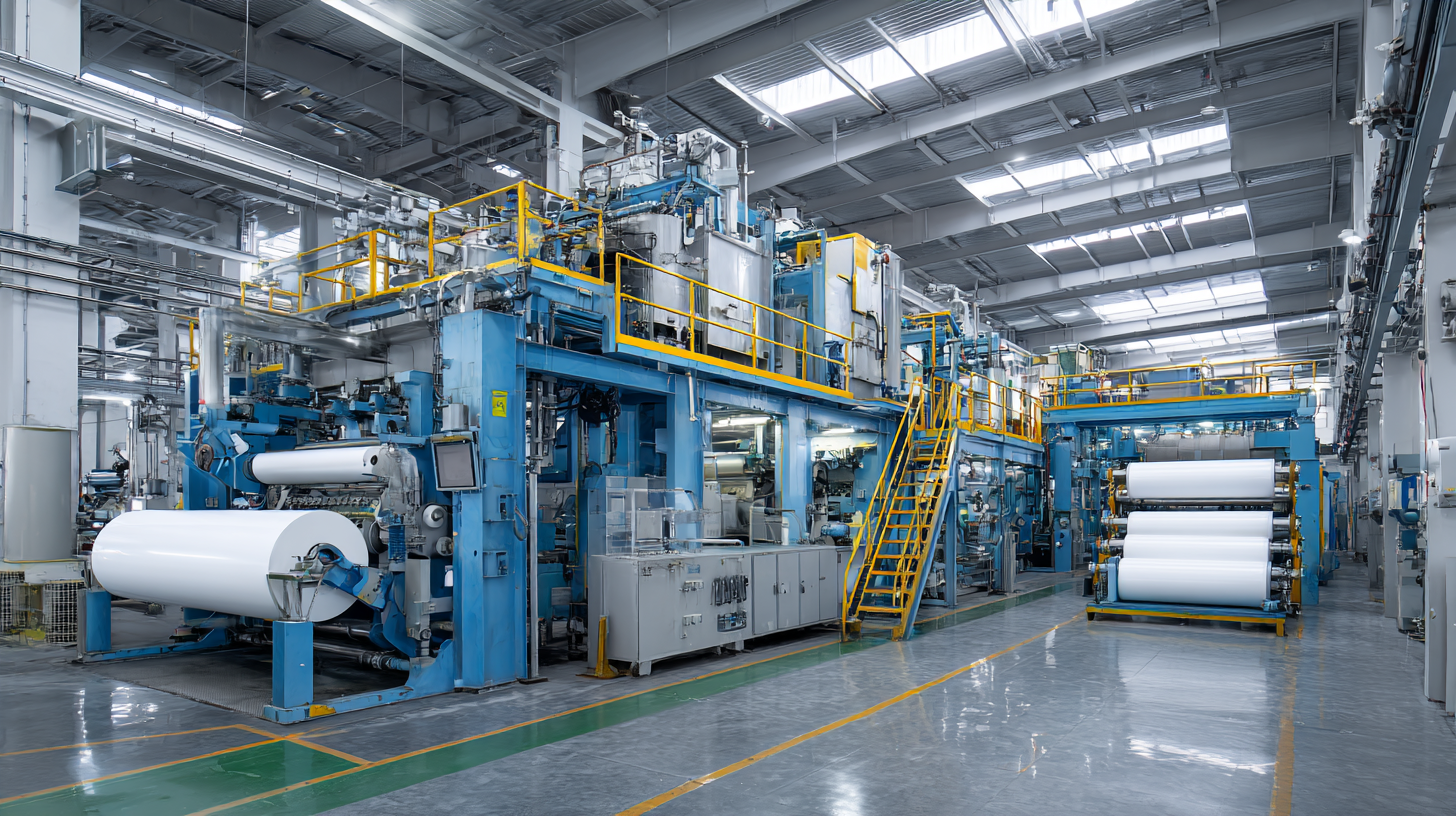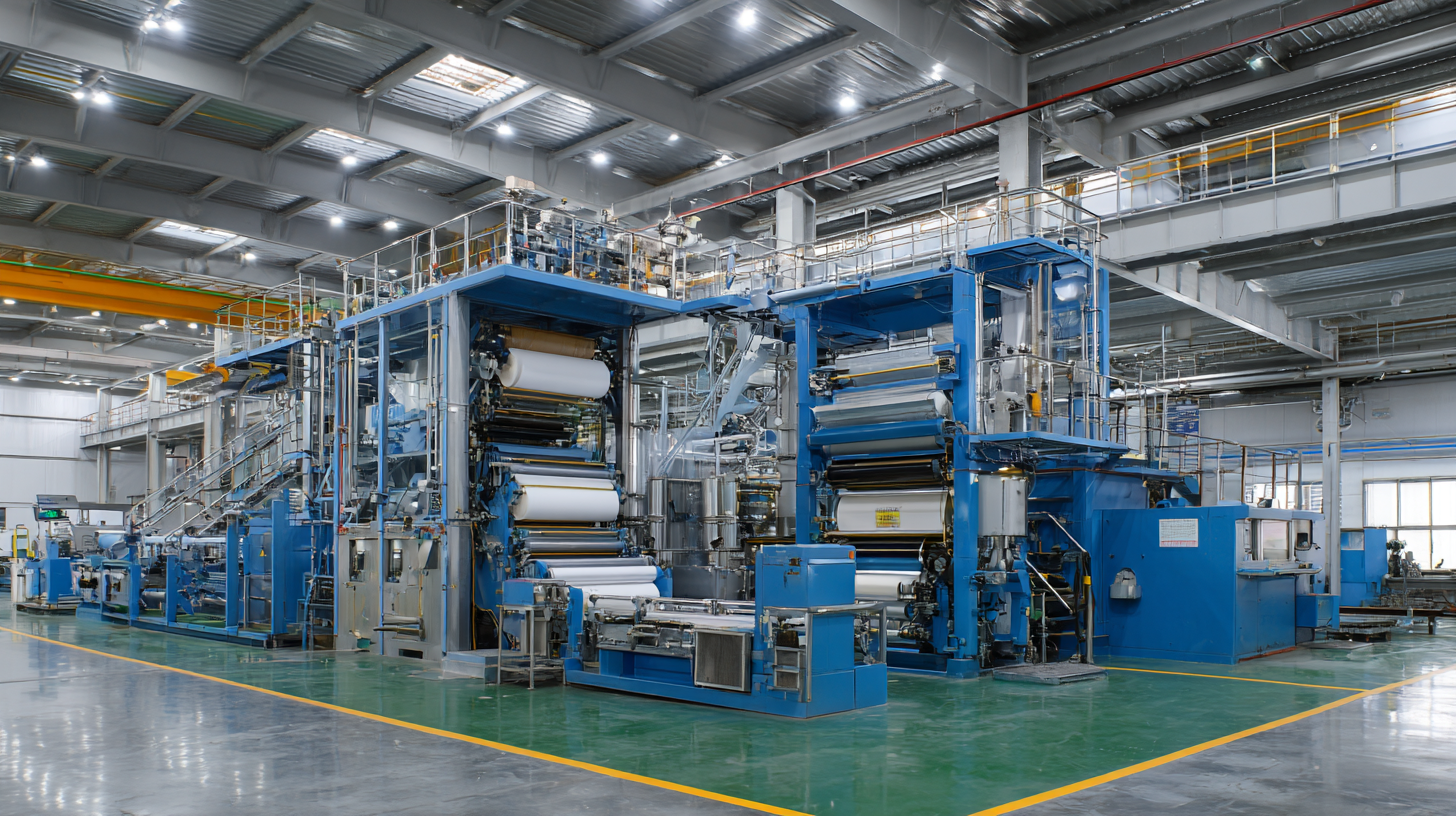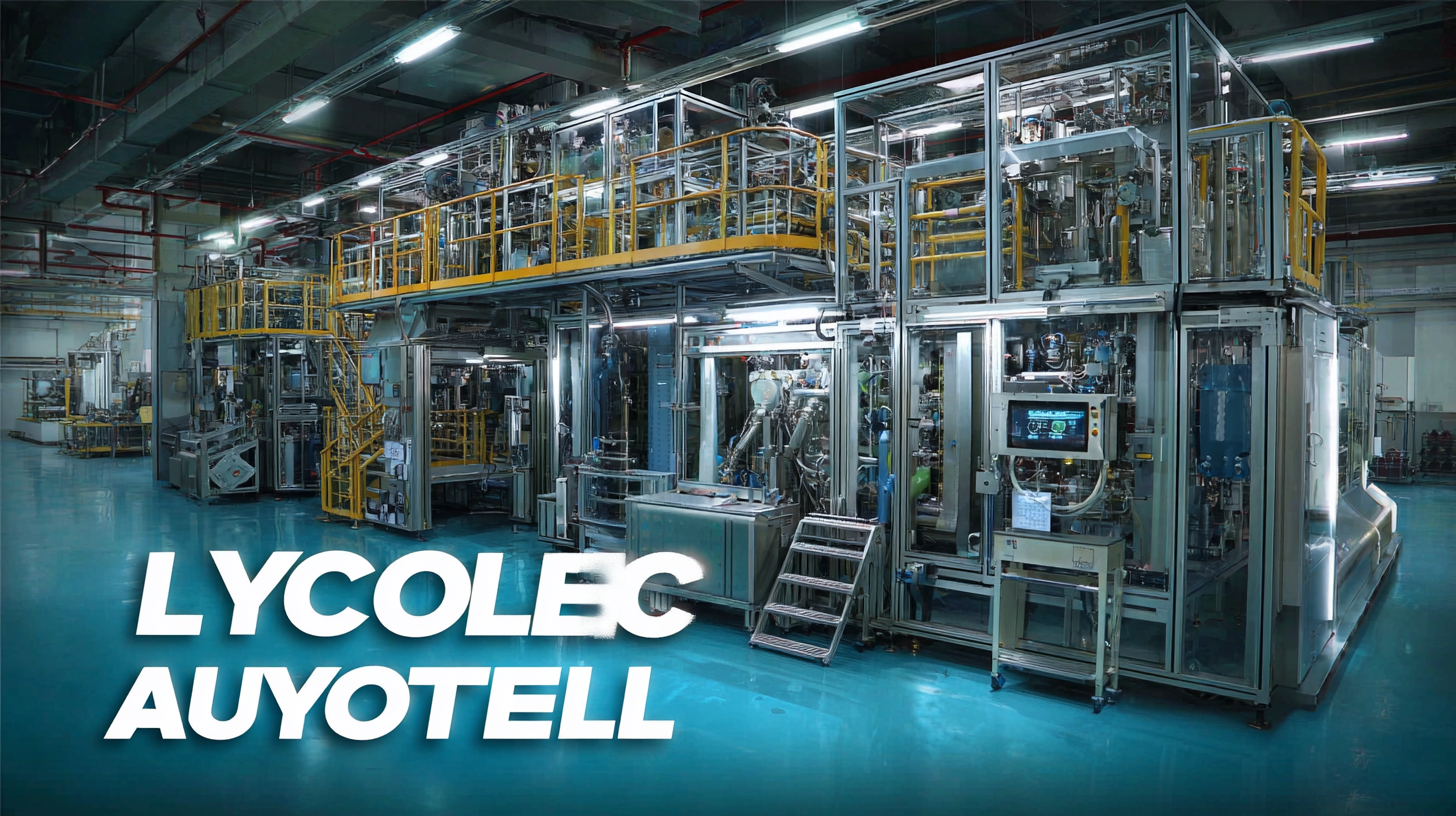Leave Your Message
In today's rapidly evolving textile industry, the selection of the right Automatic Lyocell Equipment is crucial for enhancing production efficiency and maintaining high quality standards. As manufacturers strive to meet the growing demand for sustainable and eco-friendly fabrics, understanding the essential features and specifications of automatic Lyocell machinery becomes paramount. This comprehensive guide aims to equip factory owners and decision-makers with the necessary knowledge to navigate the complexities of choosing the best equipment tailored to their unique production needs. By examining industry standards, key product specifications, and practical selection tips, this guide will empower you to make informed decisions that not only optimize operational performance but also align with sustainable practices in the textile sector.

When selecting automatic Lyocell equipment for your factory, several factors are crucial to ensure optimal performance and efficiency. First, it's important to evaluate the type of equipment that best meets your production needs. Consider options like pallet trucks, counterbalance forklifts, and reach trucks, each offering unique advantages in material handling. Understanding your factory's layout and the specific materials you'll be processing can guide your choice.
Another key factor to consider is the navigation technology employed by the equipment. Options like laser guidance, magnetic tracking, and visual systems can significantly impact the precision and safety of operations. Choosing the right navigation method can enhance your workflow and reduce costs associated with accidents or inefficiencies.
**Tips:** Always assess your factory's specifications and future scalability requirements to ensure the chosen equipment will support growth. Don't overlook the importance of maintenance and support services offered by manufacturers, as this can greatly affect the longevity and reliability of your investment. Finally, engage with industry experts to gain insights into the latest advancements and best practices that can further enhance your production capabilities.
When it comes to selecting automatic Lyocell equipment for your factory, understanding the nuances between different types is crucial. Generally, there are three main categories of equipment: batch processing systems, continuous flow systems, and hybrid models. Batch systems are favored for their flexibility and ability to handle various production cycles without significant downtime. They allow manufacturers to switch between different fiber qualities and properties easily, making them ideal for smaller operations or those experimenting with new blends.
On the other hand, continuous flow systems offer higher efficiency and production rates, making them suitable for larger factories aiming to meet high demand. These systems leverage automation and real-time monitoring to ensure consistent quality and minimize labor costs. Hybrid models combine elements from both batch and continuous systems, allowing for versatility while maintaining efficiency. This comparative analysis helps manufacturers determine which type best aligns with their production goals, budget constraints, and energy efficiency requirements, ultimately streamlining their operations and enhancing product quality.

When it comes to selecting automatic Lyocell equipment for your factory, cost efficiency should be a top priority. Evaluating budget-friendly alternatives is essential, especially for manufacturers looking to optimize production without compromising quality. Investing in high-quality equipment doesn’t always equate to high expenses; many manufacturers overlook the potential savings available through innovative, cost-effective machinery options. These alternatives often feature advanced automation technologies that enhance production efficiency while reducing labor costs and minimizing waste.
Another factor to consider is the long-term operational costs associated with different types of Lyocell production equipment. Many budget-friendly options come with lower maintenance and energy costs, significantly impacting your overall expenditure. It's crucial to conduct thorough research and seek equipment that balances upfront investment with future savings. Attend industry expos or engage with suppliers who specialize in economical Lyocell solutions to discover the latest technologies designed to meet your production needs without breaking the bank. With the right approach, selecting cost-efficient automatic Lyocell equipment can propel your factory toward greater profitability and sustainability.
When selecting automatic Lyocell equipment for your factory, sustainability should be at the forefront of your decision-making process. Different equipment options come with varying levels of environmental impact, making it crucial to evaluate their energy efficiency, water usage, and waste management capabilities. Look for equipment designed with closed-loop systems that minimize resource consumption and reduce environmental waste. This not only aligns with eco-friendly practices but can also lower operational costs in the long run.
**Tip:** Consider equipment that incorporates advanced technology for resource recovery. Systems that can recycle solvents and reuse water contribute significantly to a sustainable production process. Additionally, check if the equipment meets recognized sustainability certifications, which can further reassure you of its environmental performance.
Another aspect to consider is the lifecycle of the equipment. Select machinery that is durable and modular, allowing for easier upgrades as technology evolves. This can help reduce waste and ensure that your factory remains competitively sustainable over time.
**Tip:** Prioritize providers who emphasize sustainability in their manufacturing processes, from sourcing raw materials to the end-of-life disposal of their equipment. This holistic approach ensures that your choice supports a greener future for both your factory and the industry at large.
| Equipment Type | Energy Consumption (kWh/t) | Water Usage (liters/t) | Recycling Rate (%) | Carbon Emissions (kg CO2/t) | Cost (USD) |
|---|---|---|---|---|---|
| Batch Processor | 220 | 1500 | 85 | 300 | 100,000 |
| Continuous Processor | 180 | 1200 | 90 | 250 | 120,000 |
| Closed-Loop System | 150 | 800 | 95 | 200 | 140,000 |
| Modular Plant | 200 | 1000 | 92 | 270 | 110,000 |
When selecting automated Lyocell equipment for your factory, understanding the performance metrics is crucial. Key factors to consider include the equipment's efficiency, output quality, and reliability. Efficiency refers to how well the machine converts raw materials into finished products without excessive waste. Output quality involves assessing the consistency and durability of the fibers produced, while reliability pertains to the machine's ability to perform over time without frequent breakdowns.

Tips for assessing equipment quality include reviewing user feedback and performance history. Seek machinery with proven track records from reputable manufacturers. Evaluating maintenance requirements is also essential; machines that require less frequent maintenance can significantly reduce downtime and operational costs. Additionally, consider the technology integrated into the equipment, as modern innovations can enhance production speed and quality.
Another tip is to conduct a thorough cost-benefit analysis. While upfront costs may vary, assess long-term implications such as energy consumption, labor efficiency, and potential for upgrades. Make sure to align the equipment's capabilities with your production goals to ensure that your investment supports sustainable growth.
